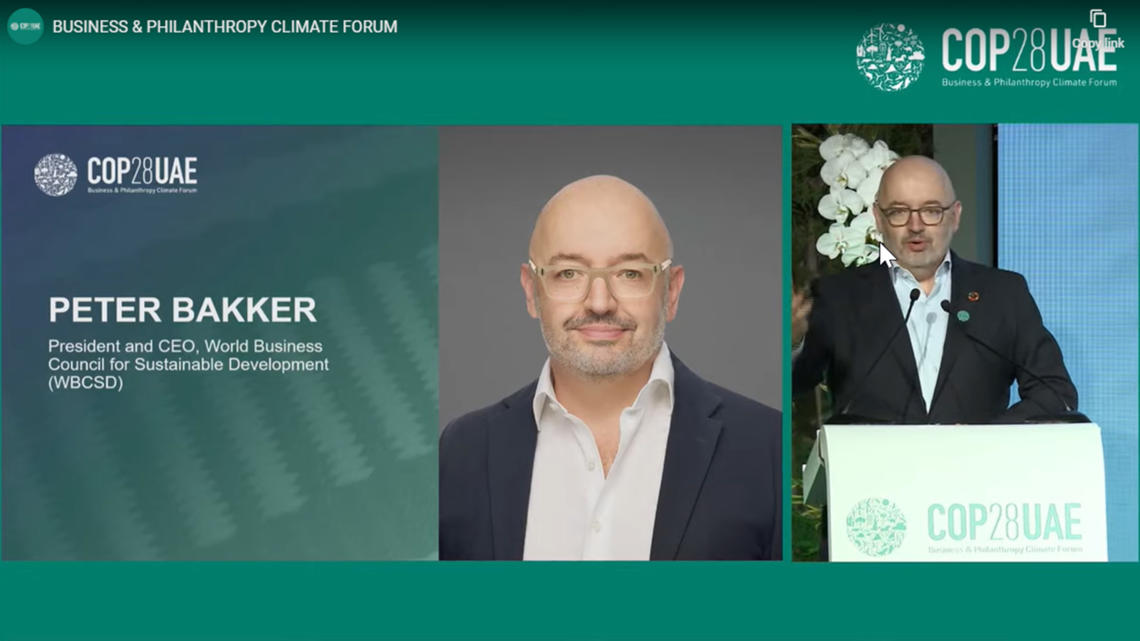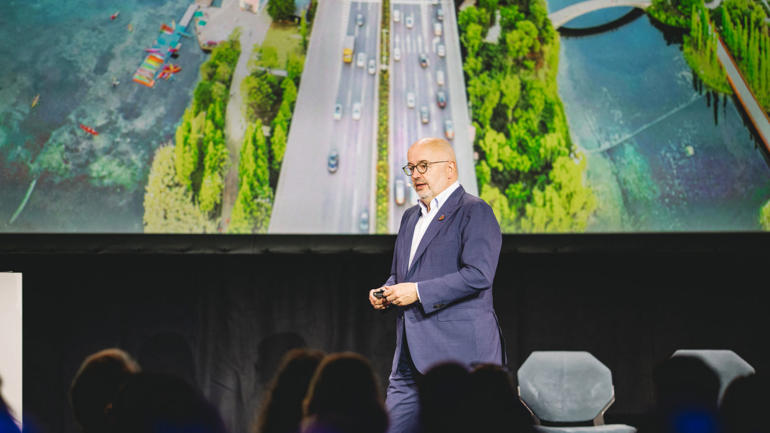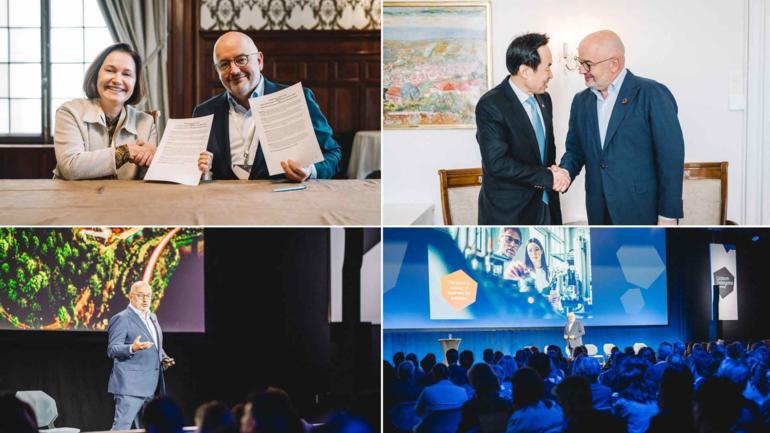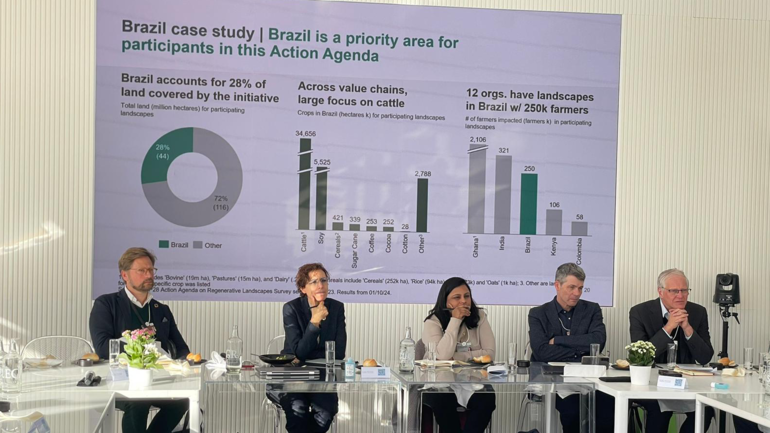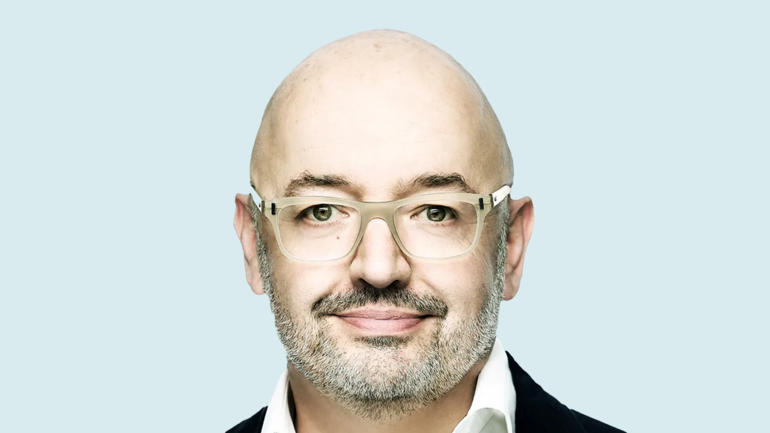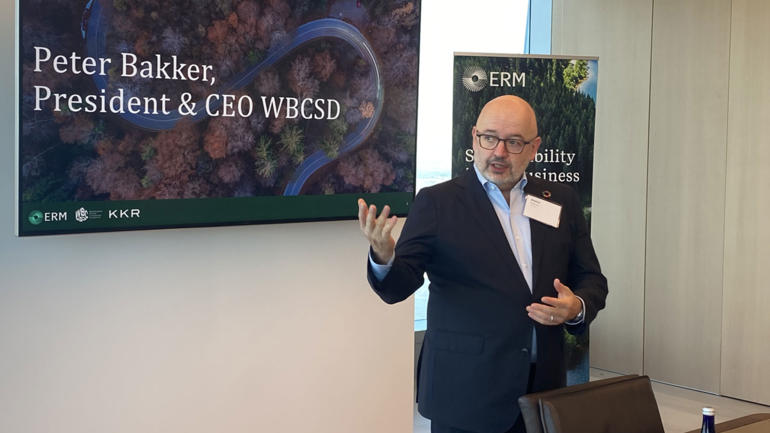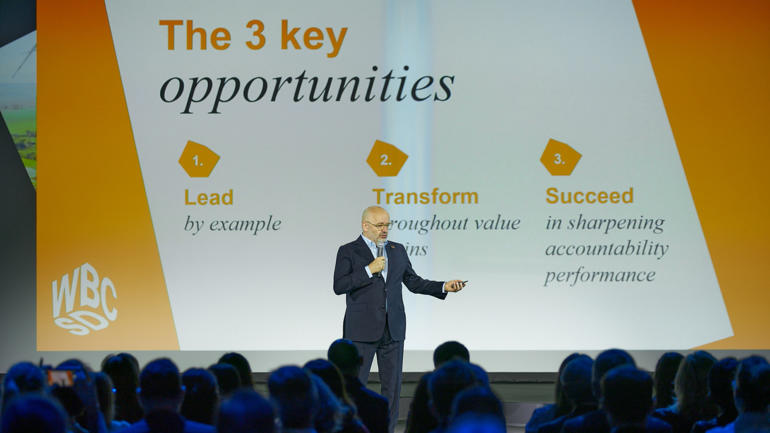Each year, I tell you that reviewing the results of a COP is a glass half-full, half-empty story. Of course, this year, the main reason for being encouraged is that for the first time, language to “transition away from fossil fuels” is part of the COP28 UAE agreement. The half-empty side is that while the progress is good, it is only the minimum start of the end, and we must ensure that both governments and businesses turn this agreement into real-economy action.
This COP differed from the past 12 editions I had attended before traveling to Dubai. Perhaps it was the energy of our Council Meeting on 28-29 November, just a day before the opening of the COP. Or perhaps it was the positive start from the COP28 Business and Philanthropy Climate Forum, with more than 1,300 leaders from across the business and philanthropy field meeting for the first time as part of a COP. It felt that, overall, the presence of a business voice of action was much louder than before.
The COP28 Presidency had done a great job designing the rhythm of announcements, with the Loss & Damage announcements on day one, followed by the Food System Declaration, to which 140 countries had signed up. This continued with the announcement of the Global Decarbonization Alliance (GDA), which contained the Oil and Gas Decarbonization Charter, the tripling of renewable energy, and the Industrial Transition Accelerator (ITA) launch. Furthermore, the attention on nature and the food and agriculture system on specific thematic days were amongst the action-oriented highlights.
The second week of the COP was mainly focused on the negotiations between parties on the Global Stocktake in what eventually became the UAE Consensus. All focus on the need to phase out of fossil fuels (supported by more than 100 countries) made the headlines in the media look like a roller-coaster. It shows how complex it is to agree on essential matters within the United Nations, where all parties/countries must agree on every word, comma, and dot. Given that complexity, even a half-empty glass can seem full.
WBCSD had a more significant presence than any COP before. We hosted or co-hosted over 50 events during COP28, and our team had many meetings with partners and members. On multiple occasions, our Executive Vice President Diane Holdorf was featured on the main stage in the massive Al Waha theatre. Meanwhile, Executive Vice President Dominic Waughray held inspiring sessions in the China Pavilion with METI from Japan and the Indian business community.
Turning the UAE agreement into real-economy action will require two things: a deep focus by businesses on innovation and transformation and a change of incentives coming from the capital markets. To connect these two elements, WBCSD was excited to launch the CEO Guide to the Climate-Related Corporate Performance and Accountability System, created to provide an unlock between the financial system and transformative business innovation at scale. You will hear much more about that in the new year.
As we enter 2024, I suggest we take the view that the UAE consensus holds enough direction for businesses to focus on a fast scaling of solutions that will deliver the tripling of renewable energy, doubling of green hydrogen, doubling of energy efficiency, move to regenerative agriculture, and decarbonization of industrial activities.
It is now up to us to fill the glass with action and hope. The world will measure our progress.

